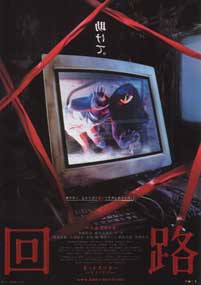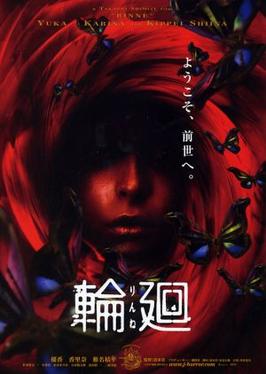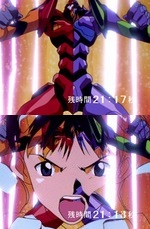
Neon Genesis Evangelion, also known simply as Evangelion or Eva, is a Japanese mecha anime television series produced by Gainax and animated by Tatsunoko, directed by Hideaki Anno and broadcast on TV Tokyo from October 1995 to March 1996. Evangelion is set fifteen years after a worldwide cataclysm named Second Impact, particularly in the futuristic fortified city of Tokyo-3. The protagonist is Shinji Ikari, a teenage boy who is recruited by his father Gendo to the shadowy organization Nerv to pilot a giant bio-machine mecha named Evangelion into combat against beings known as Angels.

Shinji Ikari is a fictional character from the Neon Genesis Evangelion franchise created by Gainax. He is the franchise's poster boy and protagonist. In the anime series of the same name, Shinji is a young man abandoned by his father Gendo. Gendo asks him to pilot a mecha called Evangelion Unit 01 to protect the city of Tokyo-3 from creatures which threaten to destroy humanity named Angels. Shinji appears in the franchise's animated feature films and related media, video games, the manga Petit Eva: Evangelion@School, the Rebuild of Evangelion films, and the manga adaptation by Yoshiyuki Sadamoto.

Pony Canyon Inc., also known by the shorthand form Ponycan, is a Japanese mass media publishing company founded on October 1, 1966. The company publishes mainly physical home media on compact discs, including music, films and TV shows and video games. It is affiliated with the Japanese media group Fujisankei Communications Group. Pony Canyon is a major leader in the music industry in Japan, with its artists regularly at the top of the Japanese charts. Pony Canyon is also responsible for releasing taped concerts from its artists as well as many anime and feature film productions.
Yamata no Orochi no Gyakushū is a tokusatsu kaiju fan film shot on 16mm by Daicon Films. It was released in December 1985 and runs at 72 minutes. This was the most heavily promoted of Daicon's fan films. It was so successful that it was released on video by Bandai/Emotion. This film was also a turning point for the career of special effects director Shinji Higuchi.

Pulse is a 2001 Japanese techno-horror film directed by Kiyoshi Kurosawa. The film was screened in the Un Certain Regard section at the 2001 Cannes Film Festival. The movie was well-received critically and has a cult following. An English-language remake, also titled Pulse, debuted in 2006 and spawned two sequels. The script was also adapted into a novel of the same name by Kurosawa himself.
Hinano Yoshikawa is a Japanese actress, fashion model and singer.

Reincarnation is a 2005 Japanese horror film, directed by Takashi Shimizu. It centers on a hopeful actress who won a role in a film that takes her, the cast, and the crew to a hotel where the present soon collides with the past.
Shinji Aoyama was a Japanese film director, screenwriter, composer, film critic, and novelist. He graduated from Rikkyo University. He won two awards at the 2000 Cannes Film Festival for his film Eureka.

"Both of You, Dance Like You Want to Win!" is the ninth episode of the Japanese anime television series Neon Genesis Evangelion, which was created by Gainax. The episode, written by Hideaki Anno and Akio Satsukawa and directed by Seiji Mizushima, was first broadcast on TV Tokyo on November 29, 1995. The series is set fifteen years after a worldwide cataclysm and is mostly set in the futuristic, fortified city Tokyo-3. The series' protagonist is Shinji Ikari, a teenage boy who is recruited by his father Gendo to the organization Nerv to pilot a gigantic, bio-mechanical mecha named Evangelion into combat with beings called Angels. The episode follows two Nerv mecha pilots, Asuka Langley Soryu and Shinji, who must defeat an Angel capable of splitting into two individuals, Israfel.

Neon Genesis Evangelion is a Japanese manga series written and illustrated by Yoshiyuki Sadamoto and published by Kadokawa Shoten. It began in Shōnen Ace in December 1994 and ended in June 2013. It consists of 14 volumes, each composed of several "stages" or chapters. It was initially released before the anime series of the same name by Gainax and Tatsunoko Production and was originally intended as a companion adaptation to that of the TV series.

Kurosagi is a Japanese manga written by Takeshi Natsuhara and illustrated by Kuromaru. The series is about a boy named Kurosaki who swindles only other professional swindlers known as shirosagi (シロサギ).
A Promise is a 1986 Japanese drama film directed by Yoshishige Yoshida. It was screened in the Un Certain Regard section at the 1986 Cannes Film Festival.
Shinji Sōmai was a Japanese film director. He directed 13 films between 1980 and 2000.

Tango Gameworks is a Japanese video game developer based in Tokyo. Founded in March 2010 by Shinji Mikami, previously of Capcom, the company was acquired by ZeniMax Media in October that year after suffering financial issues. Tango developed The Evil Within, a survival horror game released in 2014, its sequel, The Evil Within 2, released in 2017, Ghostwire: Tokyo, an action-adventure game released in 2022, and Hi-Fi Rush, a rhythm-based action game, released in 2023.
Tetta Sugimoto is a Japanese actor.

Still the Water is a 2014 Japanese romance film directed by Naomi Kawase. It was selected to compete for the Palme d'Or in the main competition section at the 2014 Cannes Film Festival. It was screened in the Contemporary World Cinema section at the 2014 Toronto International Film Festival.
Shinji Takeda, born December 18, 1972, is a Japanese actor, talent and saxophone player. He has had notable roles in such works as The Incite Mill, Kyō Kara Hitman and Tokyo Eyes.
The 8th Japan Film Professional Awards (第8回日本映画プロフェッショナル大賞) is the 8th edition of the Japan Film Professional Awards. It awarded the best of 1998 in film. The ceremony took place on April 17, 1999, at Theatre Shinjuku in Tokyo.

Naotora: The Lady Warlord is a 2017 Japanese historical drama television series and the 56th NHK taiga drama. It is written by Yoshiko Morishita and stars Ko Shibasaki as Ii Naotora.











